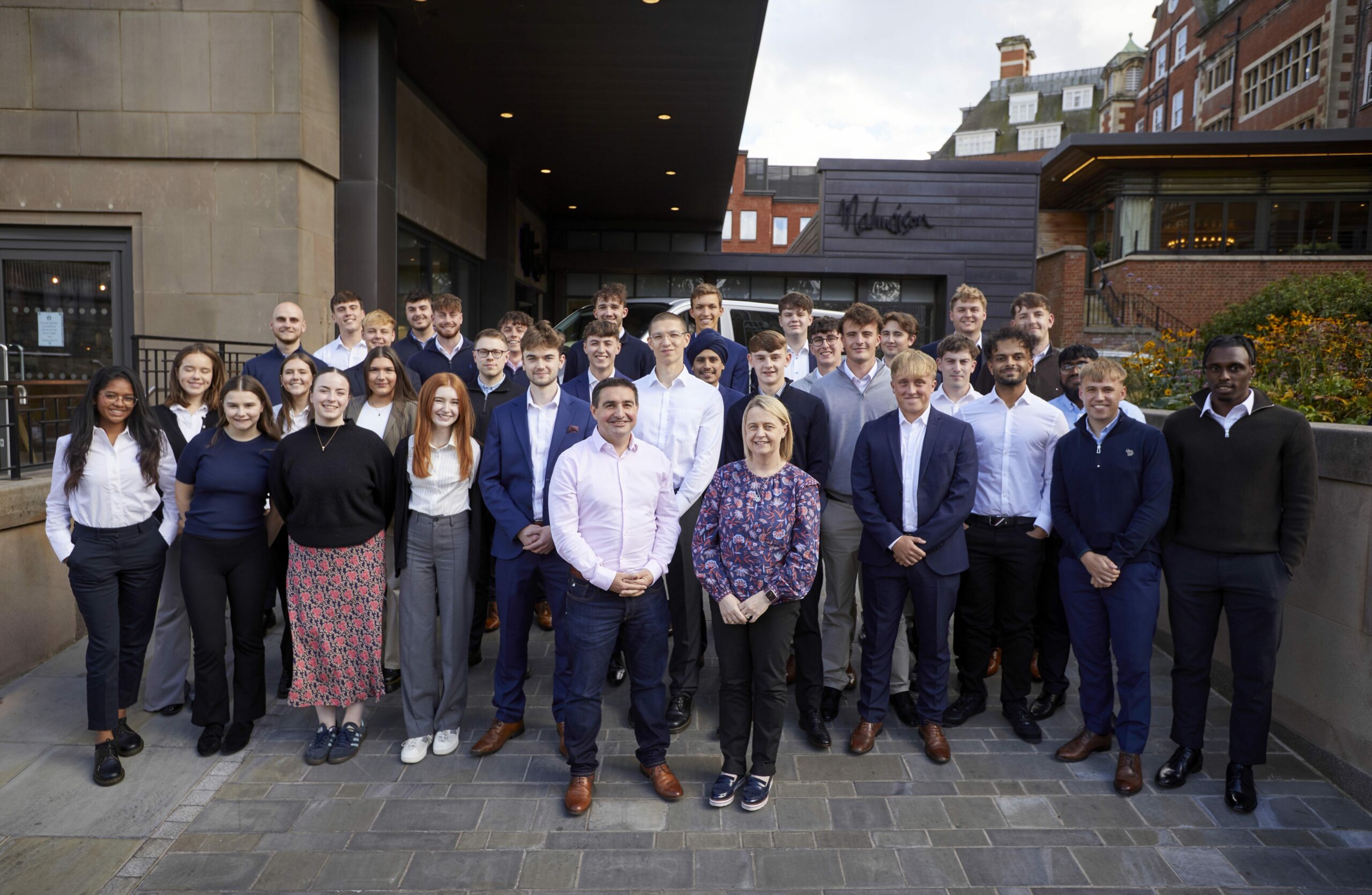If you’re considering a career in accountancy, an apprenticeship could be the perfect way to gain hands-on experience while working towards a qualification. But what does it take to stand out in the application process? And how can you make the most of your apprenticeship once you’ve secured a place?
We spoke to Sarah, BHP’s Talent Acquisition Manager, and Jayne, one of BHP’s people partners, to get their expert insights on what makes a great apprentice, their top tips for nailing your application, and how to ace an interview. Whether you’re a school leaver, a career changer, or simply exploring your options, this advice will help you take the first step towards a successful career in accountancy.
Why do you think apprenticeships are a great opportunity for students?
Sarah: “Apprenticeships provide an incredible opportunity for anyone who wants to gain hands-on experience while earning a qualification. They allow people to build their skills in a real work environment without accumulating student debt, which makes them a great alternative to university.”
Jayne: “The on-the-job learning is invaluable, as apprentices develop practical skills alongside experienced professionals, which gives them a competitive edge in the job market. Plus, apprenticeships aren’t just for young people—they’re also a great option for career changers looking for a fresh start in accountancy.”
What qualities or skills make an apprenticeship application stand out to you?
Sarah: “A strong application is when the candidate has researched the role, understands the level of commitment required, and has a genuine interest in accountancy. We look for people who demonstrate a strong work ethic, attention to detail, and a willingness to learn. Additionally, applicants who show resilience and a proactive approach to learning tend to stand out.”
How important is work experience when applying for an apprenticeship?
Jayne: “Work experience is beneficial if it has given someone exposure to a similar environment to ours, but it’s not essential. What matters more is a candidate’s potential and motivation. The ability to show transferable skills, such as problem-solving, teamwork, and time management, are great, and even if someone hasn’t worked in an office before, experiences from part-time jobs, volunteering, or extracurricular activities can be just as valuable in demonstrating key skills.”
What’s one piece of advice you wish more people knew before applying?
Sarah: “How important it is to research the role and the company before applying. An apprenticeship is a serious commitment, and employers want to see that candidates have taken the time to understand what the job involves. Showing enthusiasm for the industry, being clear about why you want to pursue accountancy, and demonstrating that you’re prepared for the demands of the programme can make a huge difference in the application process.”
Do you have any top tips for performing well in an apprenticeship interview?
Jayne: “Absolutely! First, make sure you research the company and understand the role. Be prepared to talk about why you’re interested in accountancy and how your skills and experiences make you a good fit; practice common interview questions and think about real-life examples that show your problem-solving skills, teamwork, and attention to detail. Secondly, approach the interview with confidence – maintain good eye contact, speak clearly, and don’t be afraid to ask questions. Finally, be yourself and make sure you use your own words. The rise of AI-generated answers isn’t going unnoticed, and we’d much rather hear your genuine thoughts, experiences, and motivations. Authenticity is key, and we want to see the real you, so focus on showcasing your unique strengths and what you can bring to the role.”
What soft skills do you look for in a great apprentice?
Sarah: “Soft skills are just as important as technical ability. We look for apprentices who are proactive, eager to learn, and able to take initiative. Strong communication skills, adaptability, resilience, and time management are crucial. Accountancy requires attention to detail and problem-solving skills, so having a logical mindset is essential too.”
How can apprentices make the most of their time in the programme?
Jayne: “Apprentices can make the most of their time in the programme by being proactive and fully engaging with every learning opportunity. This means asking questions, seeking feedback, and taking initiative in their work rather than waiting for tasks to be assigned. Building strong relationships with colleagues and mentors is also key. Learning from experienced professionals can provide invaluable insights and networking opportunities.”
Sarah: “Also, apprentices should take advantage of any additional training, workshops, or networking events offered by their employer or training provider. The more effort they put in, the more skills and confidence they will develop, setting themselves up for long-term success in the industry.”
Take a look at our current non-grad placement vacancies here.
This material is for informational purposes only and should not be relied upon as professional advice.



